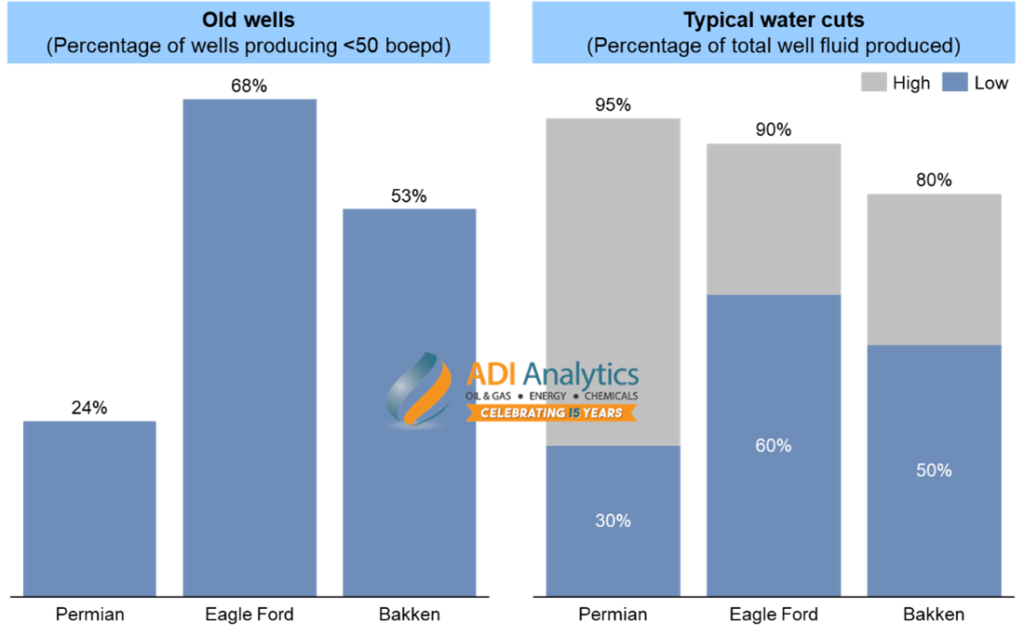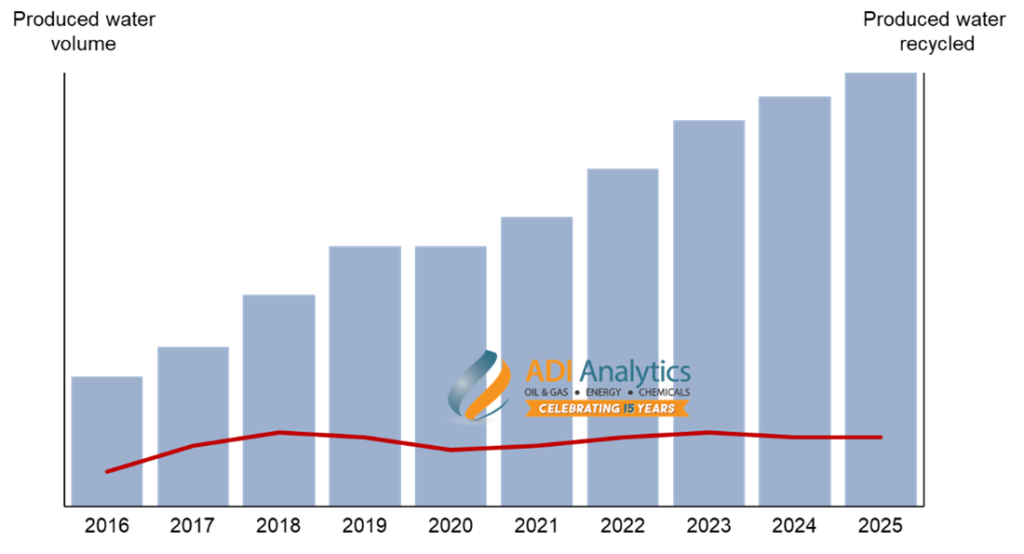
As U.S. shale plays mature, oil and gas operators face an intensification of a longstanding challenge: managing water efficiently. Given that produced water represents the largest by-product or waste stream associated with oil and gas production, coupled with the potentially costly treatment methods and environmental impacts, effectively handling produced water becomes a challenging task. The Permian Basin exemplifies the intensifying water management conundrum. On average, Permian Basin wells extract three or four barrels of water for every barrel of oil, and in some instances, the water-to-oil ratio reaches twelve to one. With water cuts escalating to as high as 95% as shale plays mature, there is a clear imperative for the development and implementation of innovative solutions for water management.

Exhibit 1: Shale plays production (left) and typical water cuts (right).
The discussion on shale water management primarily centers around three elements: sourcing water, using it in hydraulic fracturing operations, and handling wastewater from drilling and production. A substantial amount of water is employed in a single fracturing operation, prompting research to address this issue. Techniques such as rectangular pulse hydraulic fracturing have been explored, involving the injection of hydraulic fracturing fluid in a series of pulses instead of continuous injection. Recycling, which includes methods such as internal re-use by reinjecting produced water into the source oil zone or environmentally acceptable disposal, also emerges as a practical alternative to mitigate potential environmental risks associated with improper discharge. Despite the theoretical efficacy of water recycling, the Permian Basin currently recycles only 20% of produced water and the prevalent practice involves disposing of it in saltwater disposal wells.

Exhibit 2: Produced and recycled water in the Permian.
The water management challenge is not exclusive to the U.S. However, regulated control and the reuse of treated wastewater are becoming obligatory in countries to address water demand and combat water shortages. While the U.S. could draw insights from other countries’ approaches to water management, most treatment solutions are hindered by high capital and operating costs. The resolution to the water management problem remains elusive. However, conversations held during our 2024 ADI Forum emphasize that water management is on the brink of becoming a pivotal priority for oil companies. This will drive adoption of sustainable water management practices within the oil and gas industry.
ADI Analytics is a prestigious, boutique consulting firm specializing in oil & gas, energy transition, and chemicals since 2009. We bring deep, first-rate expertise in a broad range of markets including water management, where we support Fortune 500, mid-sized and early-stage companies, and investors with consulting services, research reports, and data and analytics, with the goal of delivering actionable outcomes to help our clients achieve tangible results.
We also host the ADI Forum, one of Houston’s distinguished industry conferences, to bring c-suite executives from oil & gas, energy transition, and chemicals together for meaningful dialogue and strategic insights across the value chains. Subscribe to our newsletter or contact us to learn more.
– Maria Eduarda Lopes



















